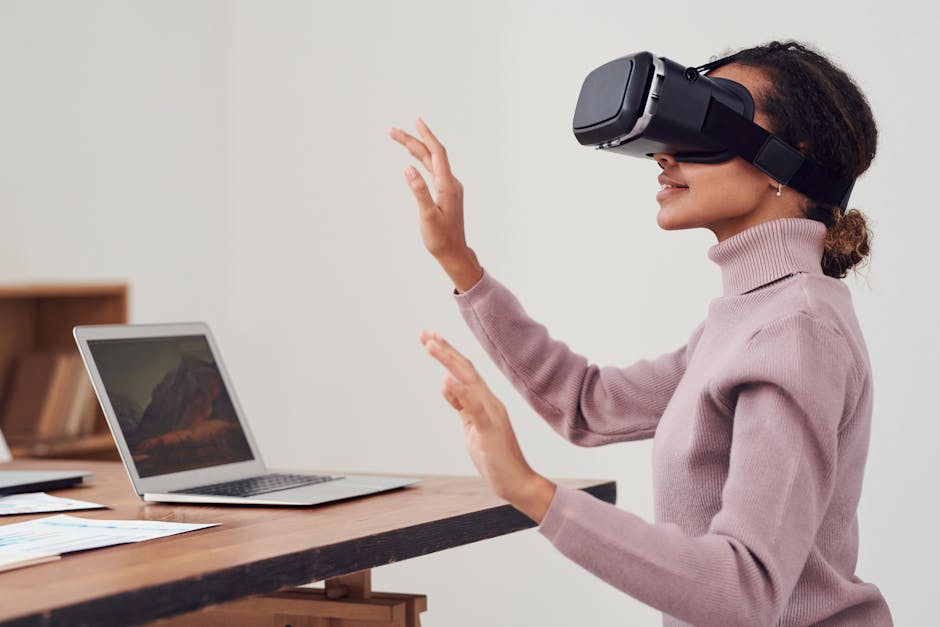Digital Employee Experience: Revolutionizing the Modern Workplace
"Explore the transformative power of digital employee experience (DEX) in modern workplaces. Learn how DEX enhances productivity, employee satisfaction, and organizational success through innovative technologies and strategies. "

The Rise of Digital Employee Experience in Modern Workplaces
In today's rapidly evolving business landscape, the concept of digital employee experience (DEX) has emerged as a critical factor in organizational success. As companies navigate the challenges of remote and hybrid work environments, the need for a seamless and engaging digital workplace has never been more pressing.

Digital employee experience encompasses the quality of interactions and engagement employees have with their organization's digital tools and technologies. It's about creating an environment where technology empowers rather than hinders, connecting employees and driving success in the digital era.
Why Digital Employee Experience Matters
The importance of DEX cannot be overstated in our increasingly digital-first world. A well-crafted digital employee experience strategy can lead to numerous benefits:
-
Enhanced Productivity: When employees have access to user-friendly, efficient digital tools, they can perform tasks more effectively, reducing frustration and boosting overall productivity.
-
Improved Employee Satisfaction: A positive DEX contributes significantly to job satisfaction. Employees who enjoy their digital work environment are more likely to be engaged and committed to their roles.
-
Talent Attraction and Retention: In a competitive job market, organizations offering superior digital experiences are more likely to attract and retain top talent.
-
Support for Remote and Hybrid Work: As flexible work arrangements become the norm, a robust DEX ensures that employees can collaborate effectively regardless of their location.
Key Components of a Successful Digital Employee Experience
1. User-Centric Design
At the heart of a positive DEX is a user-centric approach to technology. This means designing digital tools and processes with the employee's needs and preferences in mind. Intuitive interfaces, streamlined workflows, and personalized experiences are crucial elements of user-centric design.
2. Seamless Integration
A cohesive digital ecosystem is essential for a smooth employee experience. Integrating various tools and platforms ensures that employees can move effortlessly between different applications without disruption to their workflow.
3. Mobile Accessibility
In our increasingly mobile world, providing access to work-related tools and information on mobile devices is crucial. This enables employees to stay connected and productive, whether they're in the office, at home, or on the go.

4. Continuous Learning and Development
A robust DEX includes opportunities for continuous learning and skill development. Digital learning platforms and resources empower employees to grow professionally and adapt to evolving technological landscapes.
Overcoming Challenges in Implementing DEX
While the benefits of a strong digital employee experience are clear, implementing it can come with challenges:
-
Technical Complexity: Integrating various digital tools and ensuring they work seamlessly together can be technically challenging.
-
Cultural Resistance: Some employees may resist changes to their familiar digital workflows, necessitating careful change management.
-
Security Concerns: As more work processes become digital, ensuring data security and privacy becomes increasingly important.
-
Measuring Success: Quantifying the impact of DEX initiatives can be difficult, requiring a combination of quantitative metrics and qualitative feedback.
The Future of Digital Employee Experience
As we look ahead, several trends are shaping the future of DEX:
-
AI and Machine Learning: These technologies will play an increasingly important role in personalizing and optimizing the digital employee experience.
-
Virtual and Augmented Reality: As these technologies mature, they could revolutionize remote collaboration and training experiences.
-
Focus on Well-being: Future DEX strategies will likely place greater emphasis on digital well-being, helping employees maintain a healthy work-life balance in the digital age.

Conclusion: Embracing the Digital Employee Experience Revolution
In conclusion, digital employee experience is not just a passing trend but a fundamental shift in how organizations approach workplace technology. By prioritizing DEX, companies can create more productive, engaged, and satisfied workforces, better equipped to face the challenges of the digital age.
As we move forward, the organizations that thrive will be those that recognize the critical importance of DEX and invest in creating digital environments where employees can truly excel. By embracing this revolution, businesses can not only improve their bottom line but also create more fulfilling and empowering work experiences for their employees.
Want to learn more about Hybrid Work?
Explore our complete guide with more articles like this one.


